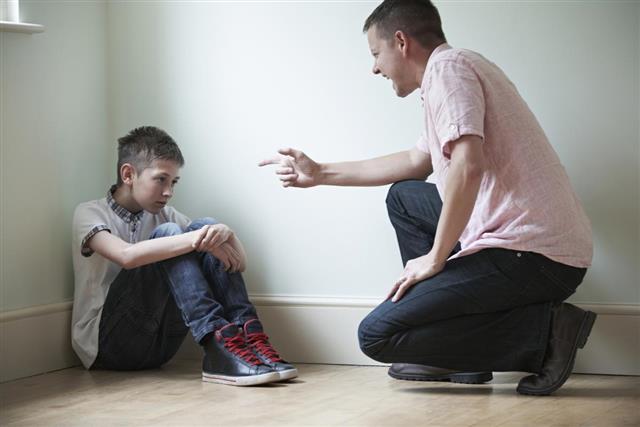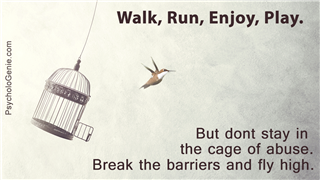
Many times, emotional abuse is accompanied with other forms of abuse. Its most common signs are low self-esteem, anxiety, frequent crying, feeling afraid, and feeling helpless amongst others. Emotional abuse can be defined as any behavior that affects the psychology of an individual by overpowering him/her. It involves verbal, as well as non-verbal abuse that eventually undermine the self-respect and independence of the sufferer.
Though emotional abuse can occur to anybody, it is more common among those who have least power in the society, for example, children and women. An individual under prolonged abuse loses his/her self-confidence, self-concept, self-motivation, and self-worth. Most commonly, emotional abuse is associated with an abusive partner or child abuse. It frequently precedes or accompanies physical abuse in domestic violence.
Very often, it is observed that a person who is abused in a relationship can be an abuser to another person. This way, the person blames his feelings and/or problems on others. Emotional abuse or maltreatment in children can affect their development in terms of cognitive, social, and psychological behavior. Indeed, the effects of child abuse are detrimental and long-lasting.
Types of Emotional Abuse
Some common types are neglecting/rejecting, isolating, abusive expectations (demands, criticism), ignoring, denying (refuse to listen or understand the feelings), constant chaos, exploiting, aggression (blaming, commanding, threatening), emotional blackmail (threatening), dominating, verbal assaults (sarcasm, berating), invalidation, and unpredictable behavior (mood changes, emotional outbursts).
These cases are overlooked or neglected, assuming that they as quite normal. But, unlike physical abuse, the effects of emotional abuse on mental health are long-term and they are difficult to get over with time.
Signs and Symptoms of Emotional Abuse
It is not unusual that the abuser displays his/her abusive characters in order to humiliate the sufferer, when they are in the company of others. However, it is very difficult to identify and assess the sufferers of emotional abuse. Hence, it goes unreported or unrecognized in most of the instances.
For every person, identifying the signs of abuse, whether physical or psychological, will definitely help in stopping the problem and leading a normal life. Listed below are some of the emotional abuse signs and symptoms.
- Feeling of depression
- Withdrawal from social interactions
- Isolation from friends and family
- Low self-esteem
- Fearfulness
- Increased anxiety
- Guilty feeling
- Feeling of shame
- Mood swings
- Nervous feeling
- Not trusting others
- Frequent blaming on others
- Self-blaming
- Pessimistic behavior
- Substance or drug abuse
- Extreme dependence on others
- Avoiding eye-contact
- Telling lies
- Aggressive behavior
- Emotional instability
- Suicidal attempts
Effects of Emotional Abuse
The ultimate outcome of emotional abuse is that the sufferer gets scared to be left alone. In majority of the cases, the recipients of emotional abuse believe that no one else likes/wants to be with them, except the abuser. Hence, they continue to stay in the abusive situations. The sufferer feels ashamed and keeps secret about the emotional abuse. But, this only makes the situation worse and the abuse continues.
If the emotional abuse remains unchecked, it can worsen the symptoms and may lead to serious emotional and psychological disorders. In case, you are abused or if you notice that somebody is being abused, then you can consult and seek help from the support services like social service agency, police, legal adviser, and health professionals.
The best way to prevent emotional abuse is personal awareness and understanding the rights and duties. Remember that there is no need to feel trapped or afraid in any kind of relationship, especially with the ones you love, respect, and trust.
Though, some forms of emotional abuse like ignoring, insulting, and isolating cannot be prosecuted, you can always consider reporting it to your near-and-dear ones. As a service provider, one can contribute to prevent emotional abuse by making the public aware about the available support services. Various laws have been enacted to punish abusers. In some jurisdictions, failure to report child abuse cases are punished either by imprisonment or in the form of fine.










